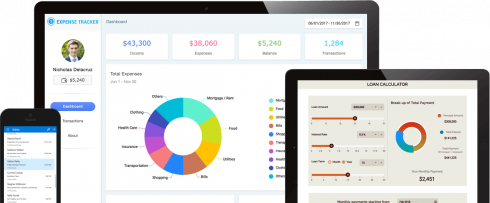
Syncfusion release Essential Studio 2019 Volume 2, which introduces Blazor controls that include template rendering, canvas chart rendering and support for file system service providers.
“Our Blazor framework includes more than 60 components that can be used to author powerful line-of-business solutions,” said Daniel Jebaraj, Syncfusion’s vice president. “Blazor is exciting because it allows developers to write client-side web apps in C# rather than JavaScript, giving them an option to code in their preferred language.”
New enhancements were also made to Syncfusion’s Xamarin offering and File Formats library, which now includes a switch control that allows users to turn and item on or off, a StepProgressBar control, and support for WPF charts in Xamarin.Forms.
Sencha Ext JS 7.0 now available
Provider of cross-application developer productivity tools Sencha debuted Ext JS 7.0, which includes over 140 pre-built UI components as well as updates to its JavaScript framework and UI components.
Ext JS aims to make enterprise-level application development simple yet efficient with UI components such as grids, pivot grids, trees, lists, forms, menus, toolbars and tools that interoperate smoothly, according to the company in a post.
“Version 7.0 represents an important milestone in advancing the limits with our framework and components,” said Kegan Blumenthal, general manager of Sencha. “Most importantly, it stays true to our commitment to make upgrades easier and versions more compatible.
New Google Play restrictions went into effect Sept. 1
Google’s new policies that require developers to provide information on their app’s target audience via the Google Play Console went into effect on September 1st.
Google added that checking for these requirements takes longer than the normal review process, and can result in review times of up to 7 days or sometimes longer. Google suggested developers to submit an app at least a week before any important launch dates.
The full details are available here.
Besu, a Java-based Ethereum client, joins the Hyperledger Foundation
The Hyperledger Foundation has added Besu, a Java-based open source Ethereum client formerly known as Pantheon, as its latest project.
“By creating clean interfaces between elements within the client (e.g., networking, storage, EVM, etc.), we believe enterprises will have a much easier time configuring Ethereum to meet their needs while also creating opportunities for other Hyperledger projects to integrate and use elements of Besu’s codebase,” Hyperledger wrote in a post.
Hyperledger Besu’s features include The Ethereum Virtual Machine (EVM) for the deployment and execution of smart contracts, consensus algorithms that are involved in transaction validation, block validation and block production, as well as storage, P2P networking and user-facing APIs.






